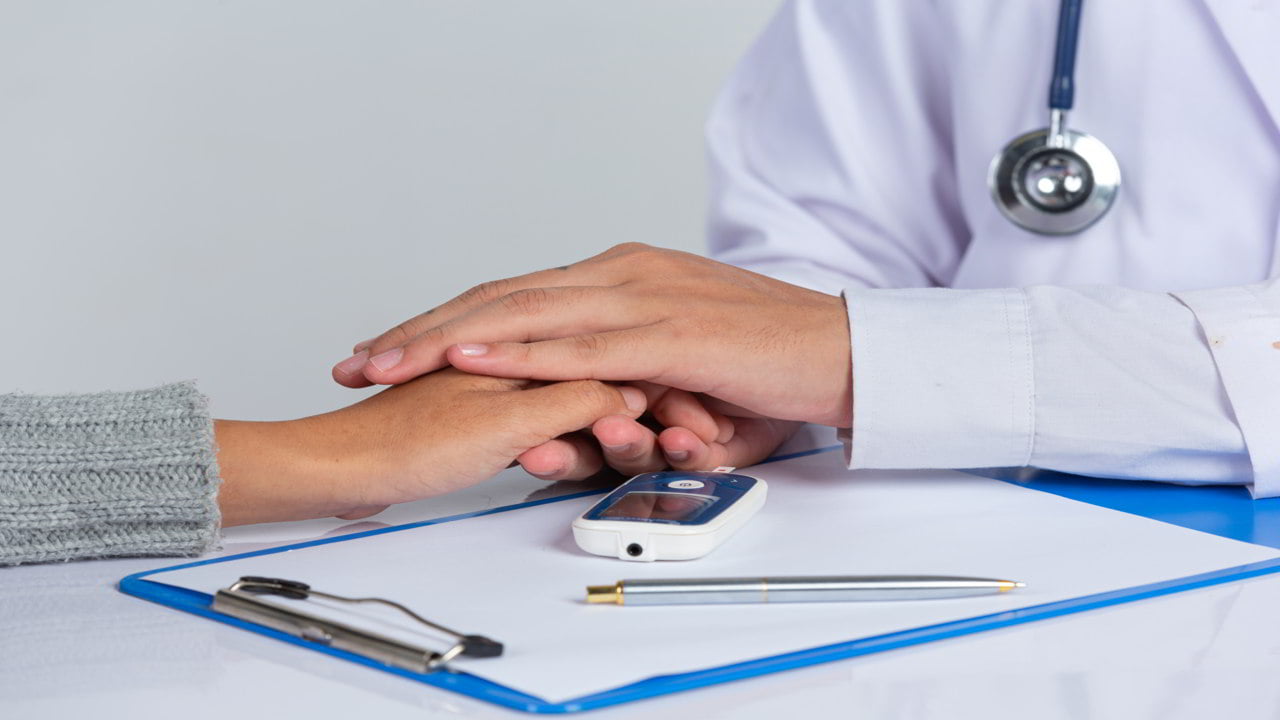Home > Blogs > Endocrinology > Difference in Diabetes Symptoms in Men & Women
Difference in Diabetes Symptoms in Men & Women
In this article, we will define diabetes, delve into its different types, focus on the unique symptoms experienced by men and women, and discuss how they can manifest differently in men and women.
We will also emphasize the importance of understanding these symptoms and explore the specific signs that may indicate diabetes in both genders.

Diabetes is a health condition where your body has trouble managing the sugar levels in your blood.
This happens because your body either doesn’t produce enough insulin (a hormone that helps regulate sugar) or can’t use it properly.
As a result, your blood sugar levels become too high, which can lead to various health problems over time.
Diabetes Symptoms in Men & Women

While some symptoms of diabetes are common to both genders, there are specific differences in how the condition manifests in men and women.
Here are some of the distinct symptoms experienced by each gender :
– Men
- Erectile Dysfunction :
High blood sugar levels can damage blood vessels and nerves, leading to difficulty achieving or maintaining an erection.
- Decreased Libido :
Diabetes can cause hormonal imbalances and reduced testosterone levels, resulting in a lower sex drive.
- Reduced Muscle Strength :
High blood sugar levels can lead to muscle weakness and reduced physical strength.
Also, Keeping blood sugar levels in control is very crucial / important for any diabetes patient. So you might need to know these dangerous blood sugar levels to keep an eye on.
– Women
- Recurrent Yeast Infections :
High blood sugar levels create a favourable environment for yeast growth, leading to frequent vaginal or urinary tract infections.
- Polycystic Ovary Syndrome (PCOS) :
Women with diabetes are at an increased risk of developing PCOS, which can cause irregular periods, excessive hair growth, and infertility.
- Gestational Diabetes :
This type of diabetes occurs exclusively during pregnancy and can result in complications for both the mother and the baby if not managed properly.
Understanding these gender-specific symptoms can help in early detection, accurate diagnosis, and effective management of diabetes in both men and women.
How Diabetes Affects Men & Women Differently

Diabetes affects both men and women, but there are some differences in how it manifests and impacts their health.
Here are some ways diabetes can affect men and women differently:
- Symptoms :
Some symptoms of diabetes are common to both genders, like increased thirst, frequent urination, and fatigue.
However, men may experience erectile dysfunction, reduced muscle strength, and decreased libido, while women might face recurrent yeast infections, polycystic ovary syndrome (PCOS), and gestational diabetes during pregnancy.
- Complications :
Men with diabetes are at a higher risk of developing heart disease and may experience it at an earlier age compared to women.
On the other hand, women with diabetes have a higher risk of developing kidney disease and have poorer outcomes after a heart attack.
- Hormonal Factors :
Women experience hormonal fluctuations during their menstrual cycle, which can cause changes in blood sugar levels.
These fluctuations can make it harder for women to manage their diabetes consistently.
This type of diabetes occurs only during pregnancy and affects women exclusively.
If not managed properly, gestational diabetes can lead to complications for both the mother and the baby, such as high birth weight, preterm birth, and an increased risk of developing Type 2 diabetes later in life.
- Psychosocial Factors :
Women tend to have a higher prevalence of depression and anxiety disorders, which can negatively impact diabetes management and overall health.
Men, on the other hand, may be less likely to seek medical help or adhere to prescribed treatments due to societal expectations and gender norms.
Understanding these differences between men and women is essential for healthcare professionals to provide tailored treatment plans and support for individuals living with diabetes.
Also, almost every diabetes patient has this question, Is diabetes curable or reversible?
find out.
Is It Even Important to Understand the Difference in Symptoms?

Knowing the symptoms of diabetes in men and women is important for several reasons :
- Early Detection
Recognizing the signs of diabetes early on allows for prompt diagnosis and treatment, which can help prevent or delay the onset of complications.
This can significantly improve the quality of life and overall prognosis for individuals living with diabetes.
- Prevention of Complications
Untreated or poorly managed diabetes can lead to severe health issues, such as heart disease, kidney failure, nerve damage, vision loss, and even amputation.
Being aware of the symptoms helps in timely intervention, reducing the risk of these complications.
- Personalized Care
Understanding the gender-specific symptoms of diabetes enables healthcare professionals to provide more accurate diagnoses and tailored treatment plans.
This ensures that men and women receive the appropriate care and support they need to manage their condition effectively.
- Improved Self-Management
Being aware of the symptoms empowers individuals to take charge of their health and make informed decisions about their lifestyle choices, medication, and self-care routines.
This can lead to better blood sugar control and overall health outcomes
Takeaway
In conclusion, understanding the importance of recognizing diabetes symptoms in both men and women is crucial for early detection, prevention of complications, and effective management of this chronic condition.
By being aware of gender-specific symptoms, individuals can take charge of their health, make informed decisions, and receive personalized care tailored to their needs.
Stay vigilant, educate yourself, and don’t hesitate to consult a diabetologist in Pune if you notice any signs of diabetes.
Together, we can work towards better health outcomes for everyone living with diabetes.
If you face any difficulties, please consult a diabetologist or go to the hospital.
Sahyadri is one of the best diabetes hospitals in Pune with a very experienced team of doctors.
Takeaway
In summary, both type 1 and type 2 diabetes are chronic conditions characterized by high blood sugar levels due to the body’s inability to produce or use insulin effectively.
While they have different causes and management approaches, the primary goal for both types is maintaining healthy blood sugar levels and preventing complications.
Proper diabetes management involves regular blood sugar monitoring, healthy eating, physical activity, taking prescribed medications, and working closely with healthcare professionals.
By following this advice, individuals with diabetes can lead healthy, fulfilling lives.
Patient Feedback
Great doctors, Good facilities, caring and helping staff. I recommend this hospital for day care services.
![]()
![]()
Sangram Shinde
All doctors r very good. There treatments is best. Other staff also good. The service of nurses is great...Hospital is always clean.
![]()
![]()
Vaishali Aitawade
All services provide by hospital are nice and on time. Doctors are polite and co-operative with patient.
![]()
![]()
Ankita Jagtap
All services provided by hospital is good. Hygiene maintained well.Even at night good care provided.
![]()
![]()


